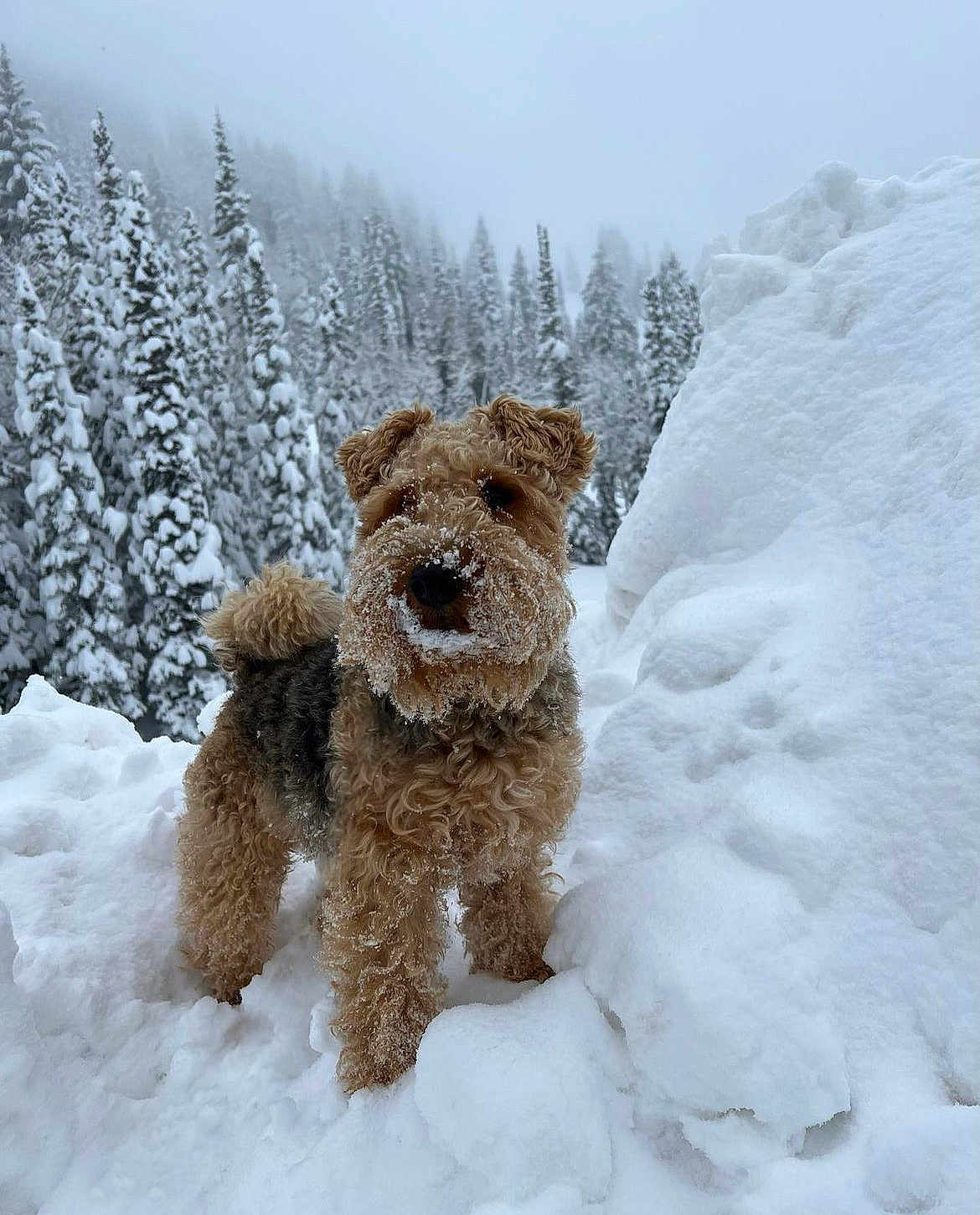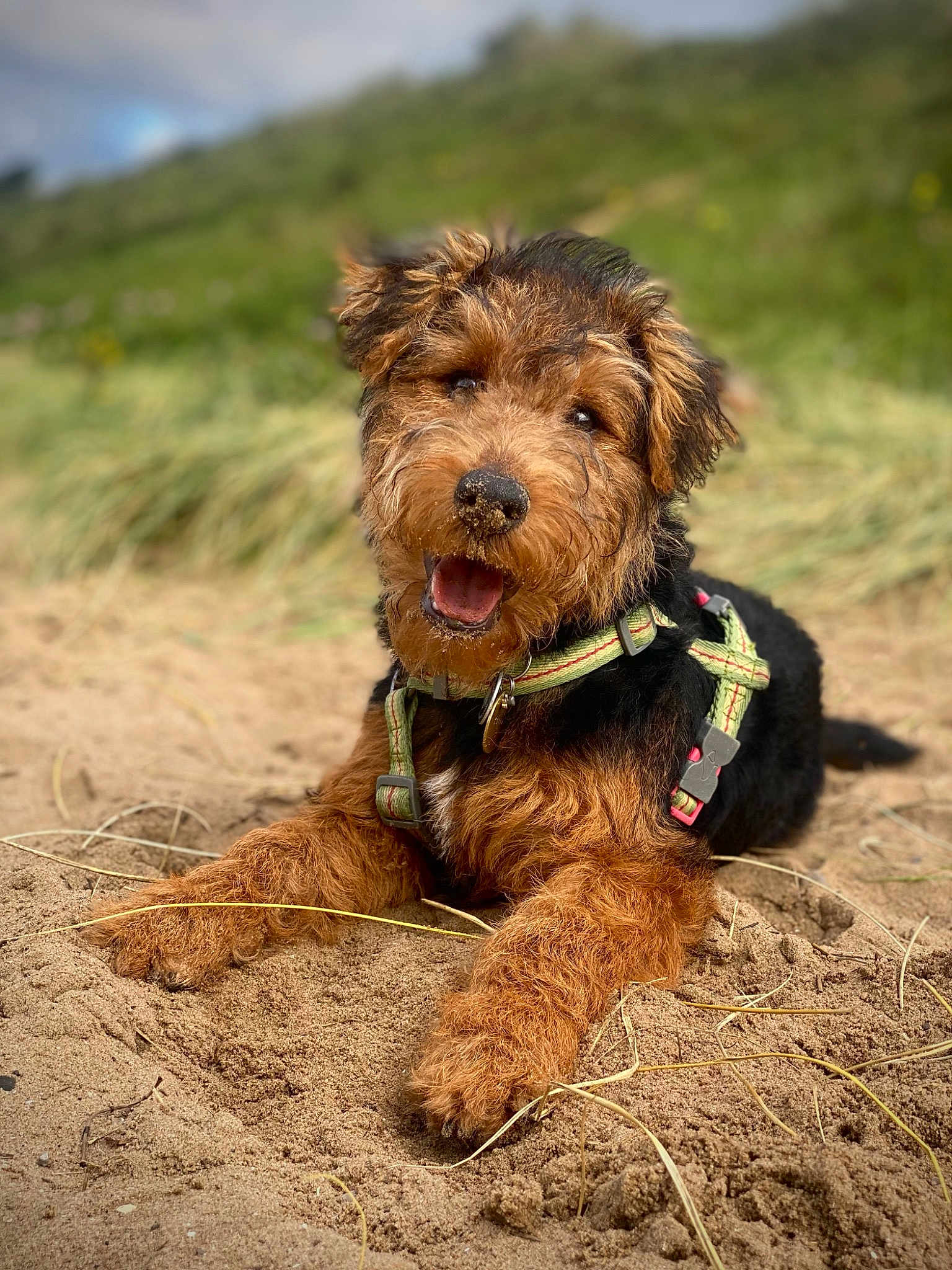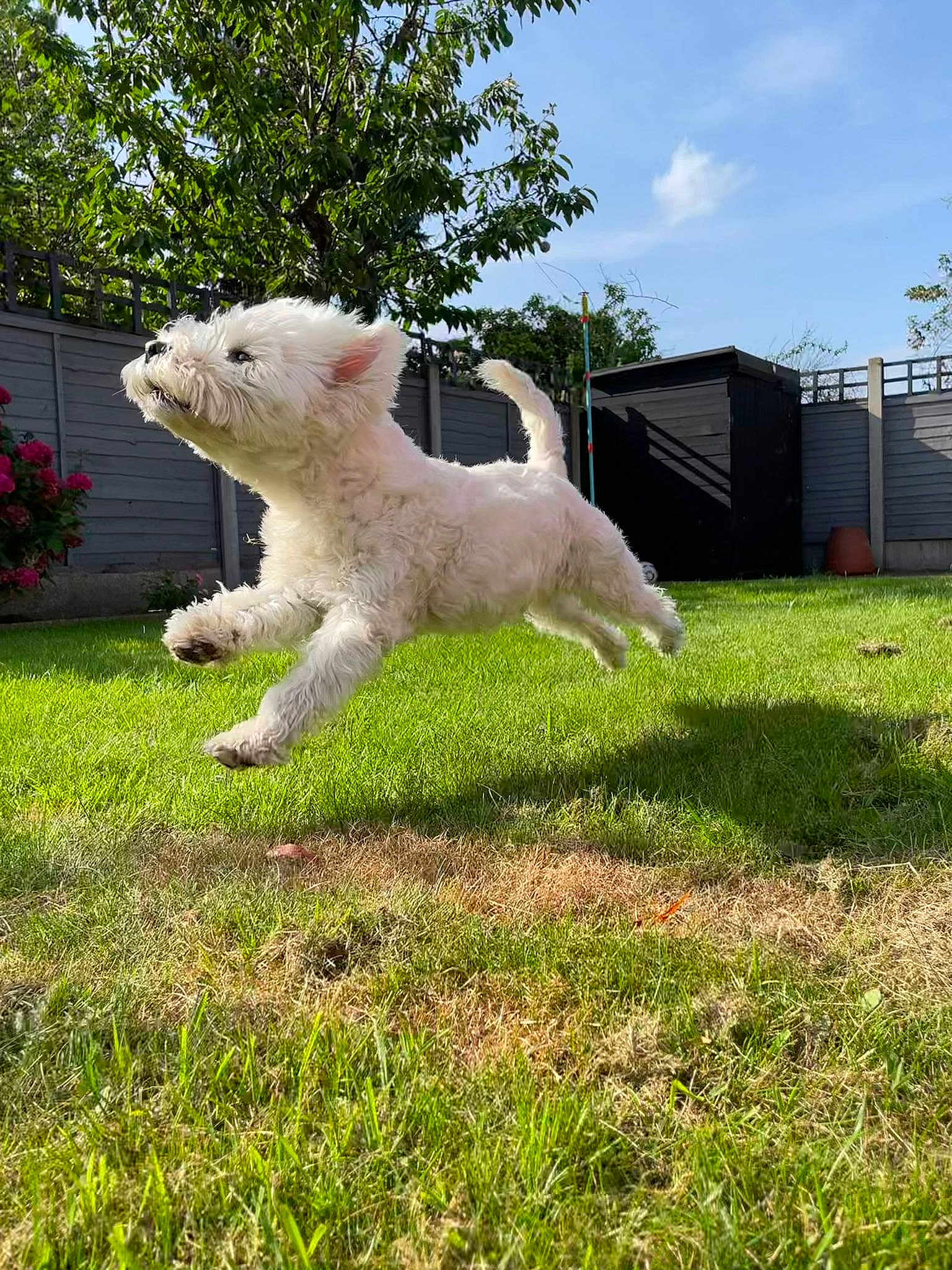
"Dogs are not our whole life, but they make our lives whole." – Roger Caras
Personality and Behavior of the Welsh Terrier
The Welsh Terrier, affectionately known as the Welshie, is a bundle of energy wrapped in a charmingly scruffy package. Known for their lively and inquisitive nature, Welsh Terriers are true representations of the terrier group. Often described as joyful and spirited, they possess an eagerness to participate in any adventure with their human companions.
Welsh Terriers have a reputation for being both fun-loving and fearless. They are highly intelligent and curious, traits that keep their owners on their toes. These dogs thrive on stimulation, making them excellent companions for individuals or families who are active and enjoy the outdoors. With their playful demeanor, Welsh Terriers can bring warmth and joy to any household.
Loyalty is another hallmark of the Welsh Terrier breed. They form deep bonds with their families and are known to be quite protective, especially of their younger human companions. This protective instinct is coupled with a strong sense of independence, a true terrier trait that can sometimes make them appear headstrong. However, with consistent training and positive reinforcement, this independent streak can be channeled into desirable behaviors.
One essential aspect of a Welsh Terrier's behavior is their affinity for digging. This is a natural instinct for many terrier breeds, rooted in their history as hunting dogs. Owners should be prepared for this behavior and provide ample opportunity for their Welshie to exercise this instinct in a positive and controlled manner.
Welsh Terriers are known to have an exceptionally playful and adventurous spirit, making them excellent companions for active individuals or families who love outdoor adventures.
Meanings, History and Origins of the name Welsh Terrier
The Welsh Terrier is a breed rich in history, with roots tracing back to the rugged terrains of Wales. Originally bred for hunting foxes, badgers, and otters, the Welsh Terrier's name aptly reflects its geographic origin and purpose. The term "terrier" itself derives from the Middle French word "terrier," which means "earth," indicating the breed’s capability to dig and chase quarry from the ground.
Welsh Terriers are among the oldest of the terrier breeds, with records of their existence dating back to the 15th century. They are sometimes referred to as "Old English Terriers" due to their long-standing history in the British Isles. Over centuries, the breed has maintained its distinct characteristics—an indication of careful and deliberate breeding practices focused on maintaining function and form.
The breed gained substantial recognition in the late 19th century, with dogs like "Old Tip" showing the hallmark traits of the breed. The Welsh Terrier Club of America was established in 1900, and since then, the breed has continued to capture the hearts of dog enthusiasts around the world. Despite their historical roots, Welsh Terriers have adapted well to modern lifestyles, proving their versatility and enduring appeal.
Popularity of the Welsh Terrier
While Welsh Terriers may not be as universally recognized as some of the more famous terrier breeds, they have a dedicated and passionate following. Their unique combination of spirited adventure and warm loyalty has kept them popular among those who appreciate a dog with character and energy.
In English-speaking countries, particularly in the United States and the United Kingdom, the Welsh Terrier enjoys moderate popularity. Breed clubs and enthusiast groups hold frequent events, underscoring the breed's active and social nature. These gatherings provide a space for Welshie owners to celebrate and advocate for their beloved terriers, creating a close-knit community.
Globally, Welsh Terriers have found homes in diverse regions, from Europe to Asia. Their adaptable nature makes them suitable for both urban and rural environments, appealing to a wide range of dog lovers. Though not always a top contender in dog show popularity rankings, the Welsh Terrier's unique appeal ensures it has a steady and devoted following.
Health and Care of the Welsh Terrier
Welsh Terriers are generally healthy dogs with a lifespan averaging 12 to 15 years. However, like all breeds, they are predisposed to certain health conditions. Potential owners should be aware of common issues such as hip dysplasia, allergies, and certain eye conditions. Regular veterinary check-ups and a proactive approach to health care can significantly mitigate these risks.
Diet is another crucial aspect of caring for a Welsh Terrier. These active dogs require a balanced diet rich in proteins, fats, and essential vitamins to support their energetic lifestyle. High-quality commercial diets or well-planned homemade meals can keep a Welshie in peak condition. Consult with a veterinarian to ensure their nutritional needs are met throughout their life stages.
Grooming is a vital component of Welsh Terrier care. Their wiry coat demands regular brushing to prevent matting and periodic stripping or trimming to maintain its characteristic texture. Professional grooming every few months, coupled with routine at-home care, ensures their coat remains healthy and appealing.
Exercise is non-negotiable for this breed. Welsh Terriers need ample physical and mental stimulation to thrive. Daily walks, play sessions, and interactive toys are essential to keep them happy and well-behaved. Engaging in dog sports like agility or earthdog trials can also fulfill their natural hunting instincts and provide excellent outlets for their energy.
Training and Education of the Welsh Terrier
Training a Welsh Terrier can be both a rewarding and challenging experience. Their intelligence and independence require a balanced approach of consistency, patience, and positive reinforcement. Starting training early is crucial, harnessing their keen learning ability during their formative months.
Socialization is key for a Welsh Terrier. Exposing them to various environments, people, and other animals from a young age can help curtail the natural wariness typical of the breed. Enrolling them in puppy classes or arranging playdates can be beneficial in molding a well-rounded and sociable dog.
Obedience training should be fun and interactive. Welsh Terriers respond well to training sessions that incorporate variety and mental challenges. Boredom can lead to undesirable behaviors, so keeping training sessions engaging and rewarding can help maintain their interest.
One common challenge with Welsh Terriers is their prey drive and tendency to chase small animals. Training recall commands and implementing safety measures like secure fencing can manage this instinct. Channeling their natural hunting skills through organized activities like scent work can also be a great way to harness their instincts constructively.
Choosing the right dog often hinges on aligning a breed’s characteristics with your lifestyle and preferences. For active individuals or families who enjoy outdoor activities and are willing to invest in training and grooming, the Welsh Terrier is a match made in heaven. Their loyal and spirited nature ensures they bring endless joy and adventure to their humans.
Selecting the perfect dog is a delightful journey. At KingPet, we celebrate the unique charm of every breed, and the Welsh Terrier is a frequent favorite in our contests. Their spirited personalities and endearing looks make them a popular choice among participants and viewers alike. Embrace the joys of choosing the Welsh Terrier breed, and watch how these delightful dogs enrich your life with their boundless energy and unwavering loyalty.





























































































